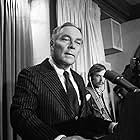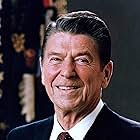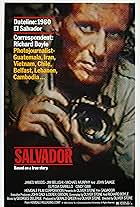Examines the origins of the civil war in El Salvador and the US involvement in it, echoing memories of the prior Eastern Asia wars and America involved conflicts in Korea and Vietnam.Examines the origins of the civil war in El Salvador and the US involvement in it, echoing memories of the prior Eastern Asia wars and America involved conflicts in Korea and Vietnam.Examines the origins of the civil war in El Salvador and the US involvement in it, echoing memories of the prior Eastern Asia wars and America involved conflicts in Korea and Vietnam.
- Nominated for 1 Oscar
- 2 wins & 3 nominations total
Photos
John A. Bushnell
- Self - State Department
- (archive footage)
Terence Cooke
- Self
- (archive footage)
- (as Terence Cardinal Cooke)
Archbishop Rivera y Damas
- Self
- (archive footage)
José Napoleón Duarte
- Self
- (archive footage)
Ita Ford
- Self - Maryknoll Missioner
- (archive footage)
- (voice)
Alexander Haig
- Self - Secretary of State
- (archive footage)
Clarence Long
- Self
- (archive footage)
Dan Mica
- Self - Representative Florida (D)
- (archive footage)
Arnoldo Ramos
- Self - FDR Representative
- (archive footage)
Ronald Reagan
- Self - President of the United States
- (archive footage)
William Rogers
- Self
- (archive footage)
Oscar Romero
- Self
- (archive footage)
- Directors
- Writer
- All cast & crew
- Production, box office & more at IMDbPro
Storyline
Did you know
- Crazy creditsClosing credits: This film is dedicated to the people of El Salvador
Featured review
This Oscar nominated documentary by Glenn Silber and Teté Vasconcellos is an interesting examination on the American intervention on El Salvador
during a critical civil war period in the early 1980's and how similar such intervention was if compared to U. S. involvement in Vietnam. It's a quite
summarized project, but one must take into account that this made way early and what happened during the decade would only escalate more and more
between the El Salvador armed forces fighting the Communist guerrillas leaving a long trail of killings on the way.
Those who studied better the situation in El Salvador will definitely reach better and smarter conclusions than me, but I always wonder about many issues revolving U. S. relations with the country and either some naivety or some obscure agenda that made them react badly to everything that went down there, even with the loss of American people there, most notably the four nuns brutally killed. Like in Vietnam, the idea on the surface is to get rid of the spread of Communist throughout the world and to each certain nation there were ways of stopping them, either through sponsored dictatorships or waging wars.
The problem with El Salvador and Nicaragua comes when the U. S supplies with training and money to the armed forces but they don't get to inspect with a closer look as to whom those forces are acting out against, which is usually poor people who have nothing to do with the rebels cause - and in the end the population is most obvious to favor the guerrillas but they have more in common than a government that leaves them in poverty and kills them for no reason. And what's America's profit in all of this? Don't know fully except that it exploded badly with the Contras but that's another story that has some similarities with what went down on El Salvador.
For those interested on the topic and with a different angle I also recommend "In the Name of the People", which follows the guerrillas in great detail and shows how important and noble were their cause. This one follows the American perspective in all of the conflict and how it could escalate into a war of disastrous consequences. There are many great archive images and interviews, but it kept me wanting for some more insights, maybe some political analyst to make some conjectures as if there were chances of the conflict becoming a potential war or ways to prevent it. Guess it didn't because the media hit hard when Americans started to get killed there - and also the U. S. military complex probably wouldn't want things to take a step further, for reasons. A good and sad report. 7/10.
Those who studied better the situation in El Salvador will definitely reach better and smarter conclusions than me, but I always wonder about many issues revolving U. S. relations with the country and either some naivety or some obscure agenda that made them react badly to everything that went down there, even with the loss of American people there, most notably the four nuns brutally killed. Like in Vietnam, the idea on the surface is to get rid of the spread of Communist throughout the world and to each certain nation there were ways of stopping them, either through sponsored dictatorships or waging wars.
The problem with El Salvador and Nicaragua comes when the U. S supplies with training and money to the armed forces but they don't get to inspect with a closer look as to whom those forces are acting out against, which is usually poor people who have nothing to do with the rebels cause - and in the end the population is most obvious to favor the guerrillas but they have more in common than a government that leaves them in poverty and kills them for no reason. And what's America's profit in all of this? Don't know fully except that it exploded badly with the Contras but that's another story that has some similarities with what went down on El Salvador.
For those interested on the topic and with a different angle I also recommend "In the Name of the People", which follows the guerrillas in great detail and shows how important and noble were their cause. This one follows the American perspective in all of the conflict and how it could escalate into a war of disastrous consequences. There are many great archive images and interviews, but it kept me wanting for some more insights, maybe some political analyst to make some conjectures as if there were chances of the conflict becoming a potential war or ways to prevent it. Guess it didn't because the media hit hard when Americans started to get killed there - and also the U. S. military complex probably wouldn't want things to take a step further, for reasons. A good and sad report. 7/10.
- Rodrigo_Amaro
- Dec 12, 2023
- Permalink
Details
Contribute to this page
Suggest an edit or add missing content

Top Gap
By what name was El Salvador: Another Vietnam (1981) officially released in Canada in English?
Answer












